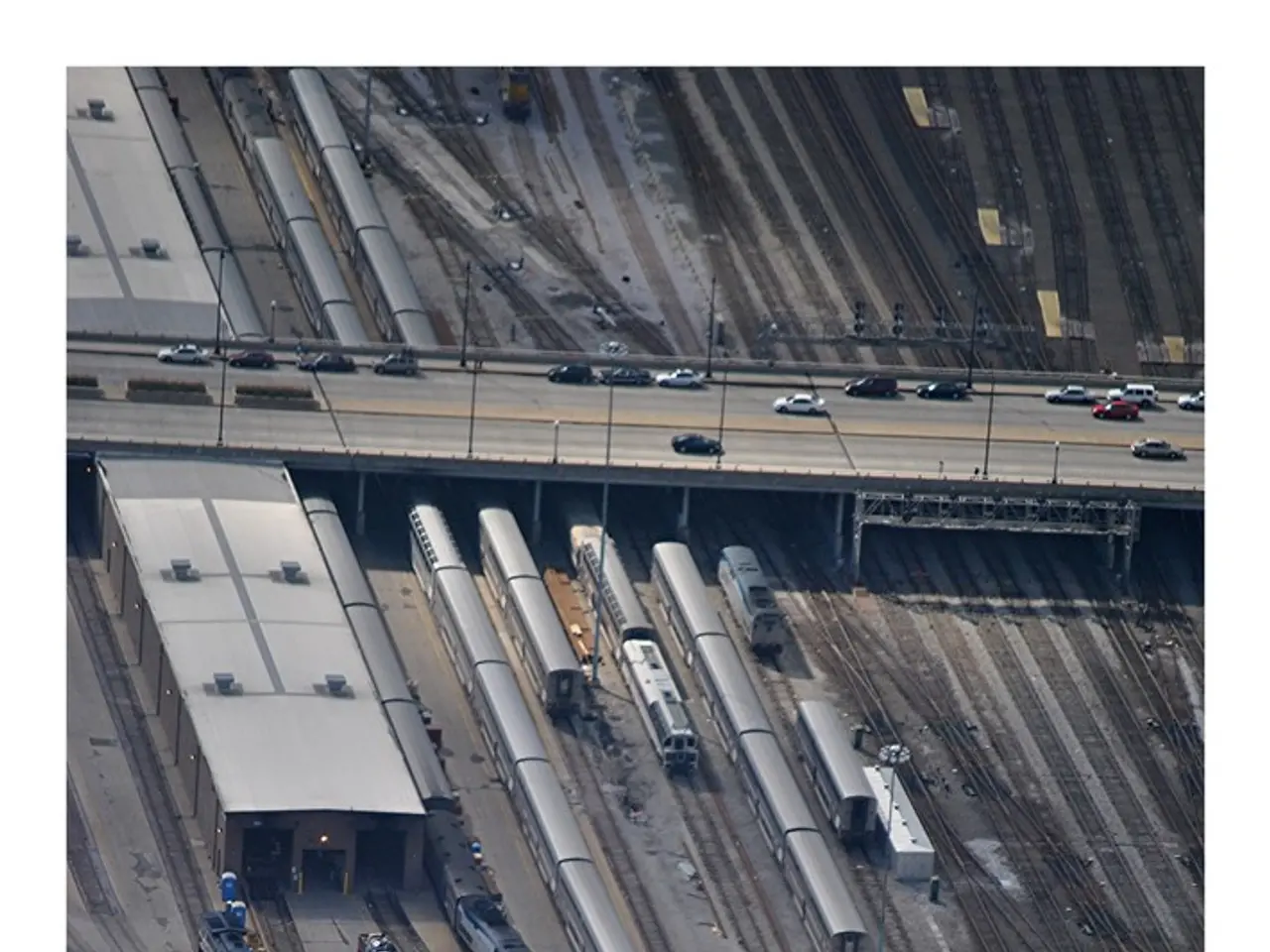Extensive Long-Distance Roadways Suffering Extensive Damage - Over 25,000 Km Affected
The condition of Germany's roads and railways is causing concern, with a significant portion requiring renovation due to aging infrastructure, insufficient maintenance, and complex modernization projects.
According to the Ministry of Transport, the term "in need of repair" for roads can range from minor surface measures to substantial renewal. Currently, over 13,600 kilometers of federal roads need repair, amounting to 33% of the total length. On motorways, about 11,000 kilometers, or 19%, require improvement.
The railway infrastructure is equally pressing. The German railway network has approximately 17,285 kilometers of track and 1,156 bridges in need of renovation. Despite the black-red federal government's commitment to invest massively in infrastructure, the number of damaged railway tracks has remained almost constant since 2022, with 17,636 kilometers in 2023. This equates to around 28-29% of the total network.
Notably, the number of railway bridges in the worst condition category 4 has remained relatively unchanged. Dietmar Bartsch, a Left Party MP, has criticized the current state of affairs, stating that out of around 4,000 bridges, only 212 were modernized last year. He urged the federal government to act quickly to improve the infrastructure situation, suggesting that at the current pace, it would take almost 20 years to modernize all bridges.
Bartsch requested this data from the Ministry of Transport and emphasized that infrastructure is a disadvantage for companies and a nuisance for citizens. The ministry's response shows that the condition of the German railway infrastructure has not significantly improved since 2022.
The challenges facing Germany's infrastructure are multifaceted. Aging infrastructure, increased deterioration and backlog, complexity and cost overruns, shortage of skilled workers and materials, and historical underinvestment and maintenance have all contributed to the current situation.
Nevertheless, Germany is embarking on what is described as the largest and most ambitious infrastructure overhaul in its modern history. With substantial government commitment and anticipated private sector involvement, major refurbishment programs are planned to extend to 2036 or beyond. The aim is to address these challenges over a long timeframe and ensure that Germany's roads and railways meet the needs of its citizens and businesses in the 21st century.
[1] Bundesverband der Deutschen Industrie (2022). Infrastruktur-Report 2022. Retrieved from https://www.bdi.de/fileadmin/user_upload/pdfs/Infrastruktur-Report-2022.pdf
[2] Deutsche Bahn AG (2021). Infrastruktur-Report 2021. Retrieved from https://www.db.de/fileadmin/user_upload/Deutsche_Bahn_AG/Investor_Relations/Investor_Relations_DE/Presse/Drittquartal_2021/Infrastruktur-Report-2021.pdf
[3] Bundesministerium für Verkehr und digitale Infrastruktur (2021). Infrastruktur-Offensive 2.0. Retrieved from https://www.bmvi.de/SharedDocs/DE/Artikel/bmvi/infrastruktur/infrastruktur-offensive-2-0.html
[4] Bundesregierung (2021). Infrastruktur-Offensive 2.0: Kernpunkte der Koalitionsvereinbarung. Retrieved from https://www.bundesregierung.de/breg-de/aktuelles/infrastruktur-offensive-2-0-kernpunkte-der-koalitionsvereinbarung-1990208
- The general-news about the condition of Germany's infrastructure is concerning, as both roads and railways require substantial renovation, with many kilometers of each in need of repair, according to recent reports.
- Dietmar Bartsch, a Left Party MP, has criticized the current state of affairs, stating that the ongoing politics regarding infrastructure investment and modernization are not moving fast enough to address the pressing needs of the German railway network in particular.






